If you’ve ever dreamed of catching the next big stock before it goes mainstream, penny stocks might just be your ticket.
Sure, they come with risk, but they also offer one of the few places left in the market where a small bet could turn into something meaningful.
These aren’t the kind of stocks you’ll hear about on primetime financial news, but that’s precisely why they can be so intriguing.
I’ve combed through a multitude of contenders to find 15 best penny stocks that caught my eye, not because they’re flashy, but because they each have a story, a setup, or a strategy that makes them worth a closer look.
TL;DR Best Penny Stocks To Buy Now
- Rezolve AI PLC (RZLV): Positioned to benefit from AI in mobile commerce; early mover advantage.
- Taseko Mines Ltd. (TGB): Copper and molybdenum miner benefiting from clean energy demand.
- Opendoor Technologies (OPEN): Real estate tech rebound potential with operational improvements.
- BAB Inc. (BABB): Franchise expansion and low debt make it a solid post-COVID recovery play.
- iHuman Inc. (IH): Digital education growth in Asia supports this AI-powered learning app.
- Waterdrop Inc. (WDH): Insurance tech platform scalable with China’s rising middle class.
- Trident Digital Tech (TDTH): Early traction in digital transformation software for enterprises.
- Verastem Inc. (VSTM): Oncology drug trials with significant upside potential if results go well.
- Advantage Solutions (ADV): Sales and marketing service provider with a blue-chip client base.
- Transocean Ltd. (RIG): Offshore drilling company gaining from rising oil exploration.
- InnovAge Holding Corp. (INNV): Healthcare services provider focusing on senior care with growth potential.
- Offerpad Solutions (OPAD): Real estate turnaround story with expansion into new markets.
- LM Funding America (LMFA): Diversifying into crypto; legacy business still cash positive.
- 180 Life Sciences (ATNF): Biotech company progressing in trials for inflammation treatment.
- Sundial Growers (SNDL): Cannabis retail and cultivation play with U.S. reform upside.
Top Penny Stocks that Could Take Off
Rezolve AI PLC (RZLV)
Overview
Rezolve AI PLC is a UK-based company making bold strides in the intersection of artificial intelligence and mobile commerce.
Positioned as a technology enabler, Rezolve has created an enterprise-grade platform designed to empower retailers with real-time engagement capabilities.
Despite its European roots, Rezolve has announced plans to expand operations into North America, which could dramatically increase its market footprint.
This small-cap company is flying under the radar for many, but those closely following the digitization of commerce recognize its potential to disrupt the retail experience.
Growth Catalysts
One of the most compelling aspects of Rezolve is its first-mover advantage in a relatively untapped corner of the mobile AI market.
While many tech giants focus on e-commerce platforms, Rezolve is zeroing in on the brick-and-mortar segment.
By helping physical stores harness mobile technologies, it bridges the digital divide in retail.
In addition, Rezolve’s licensing model could be a major revenue driver.
Rather than pursuing a consumer-facing strategy, the company is working behind the scenes, licensing its technology to large retailers, financial institutions, and logistics firms.
Risks
Like many emerging tech companies, Rezolve faces a steep climb toward profitability.
Its expansion plans require capital, and any delays in executing strategic partnerships could hurt its outlook.
Competition is also a factor; giants like Google and Apple may enter this space with deeper pockets and established client bases.
Furthermore, Rezolve is still in its early commercialization phase. With limited revenue history, it’s hard to project long-term sustainability at this stage.
Conclusion
Rezolve AI PLC is a classic speculative play—rich in vision and potential but light on current metrics.
For investors who believe in the convergence of mobile commerce and artificial intelligence, Rezolve could be a ground-floor opportunity in 2025.
Taseko Mines Ltd. (NYSEAMERICAN: TGB)
Taseko Mines has over 55 years of experience in the exploration and extraction of minerals. Its mines are almost exclusively located in British Colombia, with one mine outside Phoenix in Arizona.
Through these mines, Taseko brings in large amounts of copper and molybdenum. The company brought in 140 million pounds of copper and 2.5 million pounds of molybdenum in the last year alone.
Taseko has a majority of complete ownership in all the mines it serves. The share price has been down since May, possibly due to lackluster second-quarter financials.
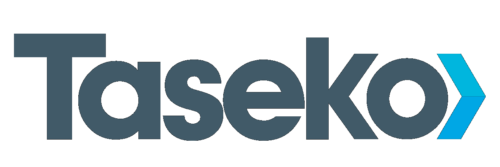 As the company developed its Gibraltar pit’s higher benches, extraction of 21 million lbs of copper and 236 over a thousand lbs of molybdenum proceeded as planned.
As the company developed its Gibraltar pit’s higher benches, extraction of 21 million lbs of copper and 236 over a thousand lbs of molybdenum proceeded as planned.
For the remainder of this year, its Gibraltar pit will serve as the principal ore source, and as mining moves into deeper benches, grades and stability of mineralization are anticipated to increase steadily.
Taseko hopes these improvements will swing share prices and revenue back in the right direction.
Opendoor Technologies (OPEN)
Overview
Opendoor Technologies is reshaping how people buy and sell homes through its online iBuying platform.
Instead of relying on traditional real estate agents and listings, the company offers sellers instant offers and streamlines the transaction process using AI-powered pricing models and internal renovation crews.
 Though the broader real estate market faced pressure from rising interest rates, Opendoor has remained committed to efficiency and innovation, making it a disruptive force in housing.
Though the broader real estate market faced pressure from rising interest rates, Opendoor has remained committed to efficiency and innovation, making it a disruptive force in housing.
Growth Catalysts
As mortgage rates begin to stabilize, the housing market is poised for a potential rebound.
Opendoor’s flexible home pricing, user-friendly interface, and fast sale model are increasingly attractive to time-sensitive sellers.
Additionally, its partnership with Zillow and efforts to reduce holding times improve operational margins.
Opendoor’s technology-centric model aligns with changing consumer preferences in a digital-first world.
Risks
The company’s financials have reflected volatility due to macroeconomic swings.
Its balance sheet shows high operating leverage, and any downturn in housing demand could stretch its resources. Regulatory risk also looms, especially around fair housing practices and data usage.
Conclusion
Opendoor represents a modern approach to real estate that may thrive as digital transactions become the norm.
While not without risks, its model provides a valuable service that could become mainstream by 2025.
BAB Inc. (BABB)
Overview:
BAB Inc. is a small-cap food service company that owns and franchises several quick-service bakery cafes under brand names like Big Apple Bagels, My Favorite Muffin, and SweetDuet.
 Headquartered in Illinois, it operates primarily in North America through a franchise-based model. The company prides itself on offering freshly prepared breakfast and lunch items, including bagels, muffins, sandwiches, and beverages.
Headquartered in Illinois, it operates primarily in North America through a franchise-based model. The company prides itself on offering freshly prepared breakfast and lunch items, including bagels, muffins, sandwiches, and beverages.
What sets BAB apart is its low overhead model, lean operations, and loyal customer base.
With more than 100 franchised locations, the company’s primary revenue stream is derived from franchise fees, royalties, and the sale of proprietary mixes.
BAB also offers co-branding opportunities that enable operators to run multiple concepts under a single roof—an innovative way to increase unit economics.
Growth Catalysts:
BAB Inc. has several factors working in its favor. First, there’s been a steady rekindled interest in quick-service breakfast and coffee spots ever since the pandemic came to an end.
As consumers revert to pre-pandemic routines, foot traffic at cafes and bakery outlets is picking up.
Second, the franchise model BAB employs allows it to expand with minimal capital risk. New store openings are driven by third-party franchisees, enabling scalability without significant balance sheet stress.
In addition, BAB has been gradually integrating mobile ordering, delivery partnerships, and loyalty programs—all of which modernize the customer experience and attract younger demographics.
Lastly, supply chain stabilization and lower input costs could help improve margins in 2025. As the company continues to streamline operations and rebrand some of its older locations, BAB may enhance its brand equity across markets.
Risks:
While BAB’s model is asset-light, it does face risks. The quick-service restaurant market is intensely competitive, with dominant players like Starbucks and Dunkin’ commanding significant brand loyalty and marketing budgets.
BAB’s relatively modest footprint and limited marketing spend could slow its national growth trajectory.
Also, consumer spending remains sensitive to inflation and economic conditions. A downturn could lead to weaker discretionary spending on breakfast and lunch outings, affecting same-store sales.
Conclusion:
BAB Inc. isn’t a flashy pick, but it’s grounded in fundamentals. Its lean operation, solid franchise support, and reemerging demand for in-person dining create a pathway for steady, if not spectacular, growth.
For those looking for a food-service play among penny stocks, BAB offers a unique blend of stability and upside.
Best Penny Stocks to Watch in 2025
iHuman Inc. (IH)
Overview
iHuman Inc. is a leading edtech company headquartered in China, specializing in interactive and AI-driven educational products designed for children in preschool and elementary school.
Their flagship product, iHuman Chinese, is a gamified learning app that has become a popular educational tool across households and schools alike.
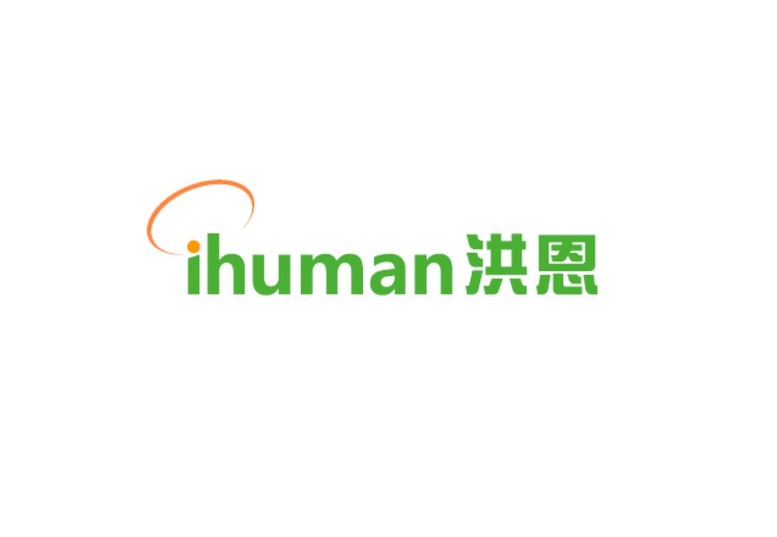 The company’s portfolio includes a mix of language learning, math, science, and music-based platforms, providing a well-rounded curriculum that aims to foster both cognitive and emotional development in young learners.
The company’s portfolio includes a mix of language learning, math, science, and music-based platforms, providing a well-rounded curriculum that aims to foster both cognitive and emotional development in young learners.
iHuman operates in a growing segment of the education market—one that fuses entertainment with pedagogy.
It utilizes animated storytelling, voice interaction, and AI-adaptive content to create personalized experiences for each child.
Its offerings are currently available on both iOS and Android platforms, with strong downloads across China and early traction in overseas markets.
Growth Catalysts
With digital transformation reshaping education globally, iHuman stands to benefit significantly. The demand for early childhood educational tools is rising, especially in emerging economies with large youth populations.
The Chinese government’s emphasis on AI development and education reform is also playing into iHuman’s hands, as policy increasingly supports blended learning models.
What’s more, the company has begun expanding its global reach by launching English-based versions of its top apps in Southeast Asia, North America, and parts of Europe.
Strategic collaborations with public schools and private institutions can further solidify its market presence outside China.
In a post-COVID world, digital education isn’t just supplementary—it’s expected, which aligns perfectly with iHuman’s core competency.
Risks
Despite the promise, iHuman faces notable headwinds. The edtech sector in China has been under intense regulatory scrutiny.
Though iHuman is more consumer-facing than institutional, any sweeping reforms could affect its operational freedom.
Additionally, competition is fierce, with established global players like Duolingo and Khan Academy fighting for market share.
Technological advancements in AI also mean the company must constantly innovate to avoid obsolescence.
Conclusion
iHuman Inc. may still be flying under the radar for many U.S. investors, but its blend of AI, gamification, and curriculum-focused apps gives it a unique edge.
If it successfully navigates regulatory landscapes and continues its international expansion, it could emerge as a major player in global edtech over the next few years.
Waterdrop Inc. (WDH)
Overview
Waterdrop Inc. is a Chinese insurtech company that bridges traditional health insurance with modern digital tools and crowdfunding.
Founded in 2016 and headquartered in Beijing, Waterdrop offers a mobile platform that lets users purchase affordable health coverage, participate in mutual aid programs, and raise money for medical emergencies.
 Their innovative approach leverages artificial intelligence, cloud computing, and big data to provide personalized insurance plans and healthcare support to underserved segments of the population.
Their innovative approach leverages artificial intelligence, cloud computing, and big data to provide personalized insurance plans and healthcare support to underserved segments of the population.
One of its flagship services is Waterdrop Insurance Marketplace, a platform that connects users with insurers through an intuitive and fast interface.
Its social fundraising feature—Waterdrop Crowdfunding—has become widely used in China for individuals facing steep medical bills.
By combining these services, Waterdrop has created a one-stop digital healthcare ecosystem.
Growth Catalysts
The most obvious growth driver for Waterdrop is the expanding middle class in China, where rising healthcare awareness is prompting more citizens to seek affordable coverage.
The Chinese government is also supportive of efforts that increase access to healthcare, and Waterdrop fits into that policy narrative.
In addition, the company is making inroads into chronic disease management by launching tailored insurance policies and services for patients with conditions such as diabetes and heart disease.
These innovations not only broaden its market appeal but also improve retention rates among users who benefit from value-added services.
Waterdrop is also actively refining its AI-powered underwriting systems, which improve the efficiency and accuracy of risk assessments.
As the company gathers more data and improves its algorithms, it’s likely to deliver more cost-effective and targeted insurance solutions, which could enhance profitability in the long run.
Risks
Despite its innovative approach, Waterdrop faces some notable risks.
Regulatory pressures in China remain a wildcard, particularly concerning data privacy and fundraising transparency.
Additionally, the business is still in its scaling phase, and monetization across all services is not yet consistent. Competitors—both traditional insurers and tech-enabled upstarts—are emerging, which could impact Waterdrop’s market share.
Conclusion
Waterdrop Inc. has crafted a compelling value proposition by addressing real gaps in healthcare affordability and accessibility.
Its use of technology to modernize insurance delivery is forward-thinking, and the company is well-positioned to scale if it can navigate regulatory challenges.
For investors comfortable with geographic and sector-specific risks, Waterdrop offers a high-upside play on the future of digital health in Asia.
Trident Digital Tech (TDTH)
Overview
Trident Digital Tech is a small but ambitious player in the enterprise software space.
Specializing in software-as-a-service (SaaS) platforms, Trident helps mid-sized and large enterprises transition away from outdated legacy systems.
 Its products are focused on digital transformation for logistics, finance, and healthcare industries, and are designed to work with existing infrastructures while enabling cloud-first strategies.
Its products are focused on digital transformation for logistics, finance, and healthcare industries, and are designed to work with existing infrastructures while enabling cloud-first strategies.
Trident’s modular architecture, cloud-native environment, and rapid deployment capabilities offer businesses scalable solutions without major overhaul costs.
The company emphasizes security, integration speed, and data compliance—three pillars that resonate with organizations operating in regulated sectors.
Growth Catalysts
Demand for enterprise software solutions continues to climb, especially among industries that lagged in digital transformation.
Logistics, financial services, and healthcare—all targeted by Trident—have started ramping up their technology investments.
Recently, Trident entered pilot partnerships with two regional banks and one multi-site hospital network.
If these pilots convert into long-term contracts, they could provide the company with recurring revenues and strengthen its position for further client acquisition.
Additionally, Trident’s team includes former developers and executives from Oracle and IBM, providing credibility and experience in scaling enterprise-grade platforms.
The company is also planning to introduce AI-based analytics into its platforms by mid-2025, offering clients real-time insights for better decision-making.
These product enhancements could make Trident more attractive in competitive RFP processes. Given the increasing importance of digital agility, companies like Trident may experience strong demand tailwinds.
Risks
Despite its potential, Trident is still in its early growth phase. It has yet to reach profitability and remains dependent on external funding.
A slowdown in the economy or tightening of capital markets could limit its ability to scale.
It also faces fierce competition from established giants like Salesforce, ServiceNow, and Microsoft Dynamics, which have deeper pockets and broader brand recognition.
Conclusion
Trident Digital Tech sits at the intersection of opportunity and risk. Its product-market fit appears promising, especially in regulated sectors craving digital overhaul.
If it secures high-value contracts and delivers on its product roadmap, the company could turn into one of the more compelling tech stories among penny stocks in 2025.
Verastem Inc. (VSTM)
Overview
Verastem Inc. is a clinical-stage biopharmaceutical company dedicated to developing innovative treatments for cancer, with a focus on overcoming drug resistance and targeting the tumor microenvironment.
 Headquartered in Massachusetts, the company’s lead candidate is VS-6766, a unique dual RAF/MEK inhibitor designed to target hard-to-treat cancers.
Headquartered in Massachusetts, the company’s lead candidate is VS-6766, a unique dual RAF/MEK inhibitor designed to target hard-to-treat cancers.
This includes non-small cell lung cancer (NSCLC) and low-grade serous ovarian cancer (LGSOC)—two areas with significant unmet medical needs.
VS-6766 is currently in Phase 2 trials and has been granted Fast Track designation by the FDA, accelerating its review process.
The drug is being tested in combination with defactinib, another Verastem molecule targeting focal adhesion kinase (FAK). The synergy between these two treatments is central to Verastem’s pipeline strategy.
Growth Catalysts
The key to Verastem’s upside potential lies in its clinical data.
The ongoing RAMP trials have shown early promise, particularly for LGSOC, where standard treatments are limited.
If efficacy continues to hold in larger sample sizes, the company could seek accelerated approval pathways.
Additionally, Verastem has inked several collaborations with leading cancer research institutions such as MD Anderson and Dana-Farber.
These partnerships not only enhance credibility but also broaden trial enrollment and data collection capabilities.
The oncology field remains one of the most well-funded and active areas in biopharma, and successful data could attract licensing or acquisition interest from larger pharmaceutical firms.
Verastem’s management is also pursuing international markets, with studies underway in Europe and exploratory plans for Asia. A broader geographic footprint could further drive revenue and adoption if approvals are granted.
Risks
As with most biotechs in early or mid-stage trials, the path to commercialization is fraught with uncertainty.
Clinical setbacks, adverse reactions, or lack of efficacy could derail the stock.
Funding is another concern; Verastem may need to raise additional capital, leading to shareholder dilution.
Conclusion
Verastem is a high-risk, high-reward play with a focused pipeline and strong scientific backing.
While it remains speculative until more data is in, a successful trial readout or partnership could act as a catalyst for significant price appreciation.
For biotech-savvy investors willing to stomach volatility, VSTM could be one of the more compelling penny stock opportunities heading into 2025.
Advantage Solutions (NASDAQ:ADV)
Advantage Solutions is a company that provides in-store marketing services. Its main line of business is the administration of free sample booths in supermarkets.
It offers a range of services, including digital commerce, omnichannel marketing, and in-store and online sampling, using data and technology. The firm has a presence across North America and other global markets.
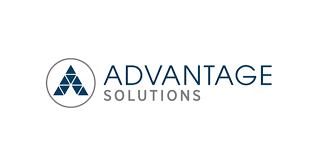 The business has stable recurring sources of income thanks to long-term alliances with high-end CPG brands, including 90% of the top 25 CPG brands. It also has a stronghold on customer analytics due to its presence among 75% of the Top 25 retailers.
The business has stable recurring sources of income thanks to long-term alliances with high-end CPG brands, including 90% of the top 25 CPG brands. It also has a stronghold on customer analytics due to its presence among 75% of the Top 25 retailers.
The firm has seen strong earnings growth in the last three years. Its sales have grown steadily since 2020, and the stock price has more than doubled from its 52 week low in April of the current year.
Transocean Ltd. (NYSE: RIG)
Transocean Ltd. is one of the largest offshore drilling ventures in the world and is based out of Vernier in Switzerland. The company uses rig-based well construction services with trained staff, innovative technology, and quality equipment to locate oil.
It tends to focus on demanding environments where other drillers do not go. Each of Transocean’s 37 rigs can drill as deep as 40,000 feet below the water’s surface to access hard-to-reach areas. Ten harsh environment rigs can travel to the most remote sections of the ocean.
Transocean also works to take care of the Earth, with plans to reduce greenhouse emissions by 40% before 2030. Share prices have been a bit up and down of late, currently sitting just a bit higher than last year at this time.
 Despite the offshore drilling rig operator’s stock seeing ups and downs along with the market as a whole, the enterprise was still on track and was optimistic about the next months.
Despite the offshore drilling rig operator’s stock seeing ups and downs along with the market as a whole, the enterprise was still on track and was optimistic about the next months.
This was due to Transocean winning a $181 million extension from Equinor SA for its Transocean Spitsbergen floater, a harsh environment semisubmersible.
Drilling is anticipated to start in October 2023 and terminate in April 2025 for the nine wells covered by the expanded contract, as well as two one-well options.
The company and investors have been waiting for a recovery in the offshore drilling industry for some time, and Transocean’s most recent order is proof of it. Investors may believe that Transocean has even brighter days ahead of it even with uncertainty around oil and gas prices.
Hottest Penny Stocks to Buy Today
InnovAge Holding Corp. (NASDAQ: INNV)
InnovAge Holding Corp. is a healthcare services provider specializing in the Program of All-Inclusive Care for the Elderly (PACE), which delivers comprehensive, community-based care to seniors, particularly those who are frail and eligible for both Medicare and Medicaid.
Through PACE, InnovAge offers a wide range of services, including primary care, dental care, physical therapy, and social services, all coordinated by interdisciplinary care teams.
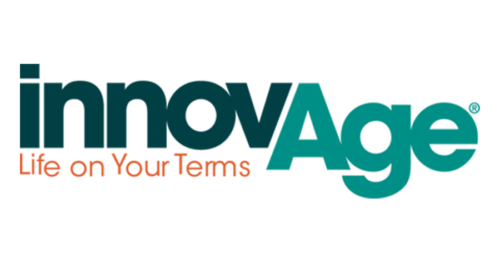 The company’s mission is to enable seniors to live independently in their homes and communities for as long as safely possible.
The company’s mission is to enable seniors to live independently in their homes and communities for as long as safely possible.
With operations in multiple states, InnovAge is expanding its reach to meet the growing demand for senior care services in an aging population.
Offerpad Solutions (OPAD)
Overview
Offerpad Solutions is an Arizona-based real estate technology company that streamlines home buying and selling through an iBuying platform of its own.
Like its larger rival Opendoor, Offerpad purchases homes directly from sellers, performs light renovations, and relists them for sale—cutting out the traditional real estate middlemen.
.jpg) The entire process is managed through its digital platform, giving homeowners a fast, flexible, and transparent way to sell properties.
The entire process is managed through its digital platform, giving homeowners a fast, flexible, and transparent way to sell properties.
Since its inception, Offerpad has focused on second-tier growth markets like Phoenix, Atlanta, and Orlando, targeting metro areas where population growth and housing turnover offer promising returns.
Its model appeals to homeowners who prioritize convenience over maximizing sale price, particularly in a market where time-to-sale matters.
Growth Catalysts
One of Offerpad’s strongest growth levers is geographic expansion. The company has increased its footprint across the Southeast and Midwest, focusing on affordable, high-growth housing markets.
These regions are experiencing an influx of remote workers and retirees, creating sustained demand for turnkey housing solutions.
Operationally, Offerpad has implemented several cost-cutting initiatives and automated backend processes to boost margins.
Its vertically integrated model—handling everything from renovations to real estate services—gives it control over the customer journey, which may enhance both profitability and customer retention.
Additionally, its Offerpad Renovate and Flex programs are gaining traction. Renovate allows sellers to make pre-sale improvements financed by Offerpad, while Flex offers a hybrid model that combines traditional listing and instant sale.
These programs expand its market appeal and give the company more diversified revenue streams.
Risks
Despite these positives, Offerpad is not immune to macroeconomic pressures. Rising mortgage rates, volatile home prices, and increased renovation costs can squeeze margins.
The iBuyer model also demands precise pricing algorithms—mistakes here can lead to overpaying for properties or failing to move inventory quickly.
The company remains unprofitable, raising concerns about its long-term financial sustainability.
Conclusion
Offerpad Solutions is a modern-day real estate innovator that’s making smart moves in a recovering market.
While it’s still a speculative play, particularly in a high-rate environment, its operational improvements and market expansion offer a clear runway for growth.
If real estate sentiment continues to improve in 2025, Offerpad could see a strong rebound.
LM Funding America (LMFA)
Overview
LM Funding America is a unique micro-cap finance and crypto play, based in Florida.

This niche but consistent revenue stream has anchored LMFA’s operations for years.
The company also has some digital assets to fall back on. In 2021, the company made headlines by purchasing Bitcoin mining rigs and forming blockchain-related partnerships, signaling a high-risk, high-reward diversification strategy.
While its core business remains stable, this crypto venture opens the door to exponential gains—or losses—depending on the volatility of the market.
Growth Catalysts
The company’s core receivables business remains its financial bedrock. With housing associations increasingly outsourcing collections due to rising delinquencies, LMFA’s services are in growing demand.
The firm continues to sign new contracts with associations, providing predictable cash flow.
However, the wildcard is crypto. If Bitcoin prices continue to rise significantly in 2025, LMFA’s early investments in mining equipment and digital asset infrastructure could become highly lucrative.
The company’s mining operations are already generating Bitcoin, and management has suggested further scaling if market conditions allow.
Additionally, LMFA has implemented significant cost controls in recent quarters.
Trimming SG&A expenses and shedding non-core assets has improved its operational efficiency. The firm also reduced outstanding debt, positioning it for greater financial flexibility.
Risks
LMFA’s exposure to Bitcoin and blockchain ventures makes it vulnerable to crypto market downturns.
A prolonged bear market in digital assets could undermine much of the company’s upside potential.
Additionally, being a small-cap firm, LMFA is sensitive to liquidity issues and may face challenges in accessing capital for expansion.
Conclusion
LM Funding America offers a rare blend of stable cash flow from real estate receivables and speculative upside from crypto mining.
It’s a hybrid story that may appeal to investors looking for both consistency and moonshot potential.
If Bitcoin and housing receivables stay strong, LMFA could outperform expectations.
180 Life Sciences (ATNF)
Overview
180 Life Sciences is a clinical-stage biotechnology firm aiming to address serious inflammatory conditions through its pioneering work in anti-TNF (tumor necrosis factor) therapy.
The company is developing treatments for fibrotic and inflammatory diseases such as Dupuytren’s contracture, frozen shoulder, and nonalcoholic steatohepatitis (NASH).
 What sets 180 Life Sciences apart is its commitment to leveraging decades of foundational research in inflammation and fibrosis, combined with support from top academic partners like Oxford University, Stanford University, and Hebrew University.
What sets 180 Life Sciences apart is its commitment to leveraging decades of foundational research in inflammation and fibrosis, combined with support from top academic partners like Oxford University, Stanford University, and Hebrew University.
ATNF’s flagship candidate, an anti-TNF compound, is designed to block chronic inflammation, which plays a critical role in various degenerative diseases.
The company is conducting multiple Phase 2 trials and aims to provide non-invasive, cost-effective treatment alternatives to surgical options.
This focus positions it uniquely within the broader biopharma landscape
Growth Catalysts
The company’s progress in clinical development is one of the most compelling catalysts.
Preliminary results from recent Phase 2 studies have shown favorable efficacy and safety outcomes, leading to heightened interest among institutional investors.
Additionally, the chronic inflammation market is enormous, with millions of patients in need of therapies that go beyond existing drugs like Humira.
ATNF is also benefiting from growing awareness of fibrosis-related conditions and increasing funding opportunities in biotech.
With supportive data and a clearly defined target market, the company could become a takeover target for larger pharmaceutical firms looking to expand their inflammation drug portfolios.
Furthermore, 180 Life Sciences continues to engage with regulatory authorities, building a foundation for possible expedited approval pathways.
Risks
Biotech investing always carries risk, and ATNF is no exception. Clinical trials can fail due to lack of efficacy or unforeseen side effects.
There is also the ongoing risk of dilution, as the company may need to raise additional funds to continue trials and operations.
The path to commercialization is lengthy and filled with regulatory hurdles.
Conclusion
180 Life Sciences represents a focused and scientifically credible bet on the future of inflammation treatment.
While high risk due to its stage of development, the upside potential is meaningful if trials continue to produce favorable data.
For investors with an appetite for biotech volatility and long-term growth potential, ATNF is one to keep on the radar in 2025.
Sundial Growers (SNDL)
Overview
Sundial Growers is a Canada-based cannabis company with an evolving business model that spans cultivation, retail, and strategic investments.
Initially known for its flower products, Sundial has since repositioned itself as a vertically integrated cannabis operation.
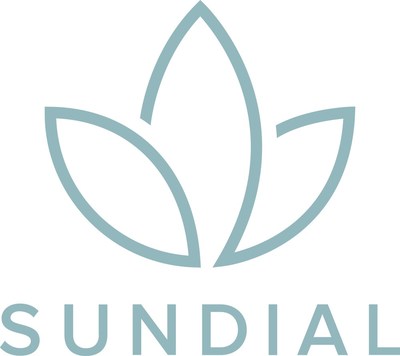 Through its subsidiary Alcanna, it owns one of Canada’s largest liquor retail networks, which doubles as a distribution and branding asset for its cannabis portfolio.
Through its subsidiary Alcanna, it owns one of Canada’s largest liquor retail networks, which doubles as a distribution and branding asset for its cannabis portfolio.
In addition to Canadian operations, Sundial has increased its exposure to the U.S. market through targeted investments and joint ventures, setting itself up for cross-border expansion if regulations permit.
Growth Catalysts
Sundial’s strategic pivot from being just a grower to becoming a diversified cannabis and consumer products holding company has increased its resilience.
One major growth lever is the potential for U.S. cannabis reform. If federal legalization or SAFE Banking legislation progresses in 2025, Sundial’s U.S. investments could become highly lucrative, providing an early-mover advantage.
The company also holds significant liquidity, which it has used for acquisitions like Spiritleaf and Inner Spirit Holdings.
These deals have expanded its retail footprint and customer base. Moreover, Sundial has shown discipline in restructuring its debt and reducing operational losses, giving it flexibility to scale as the market matures.
Another driver is the emergence of cannabis-based wellness and pharmaceutical products.
Sundial is investing in R&D initiatives aimed at tapping into this sector, potentially opening doors to higher-margin revenue streams. If successful, it could transition from a commodity grower to a branded product innovator.
Risks
Despite its strengths, Sundial faces several headwinds. The Canadian cannabis market remains oversupplied, putting downward pressure on prices and margins.
In the U.S., regulatory reform is still uncertain, and without it, Sundial’s cross-border plans may stall. The company’s revenue growth has also been lumpy, which could deter institutional interest.
Conclusion
Sundial Growers offers a blend of cannabis industry exposure and strategic optionality.
While speculative, especially given regulatory ambiguity, its strong balance sheet, retail footprint, and U.S. entry strategy position it well for upside if the environment shifts.
For investors comfortable with cannabis-sector volatility, SNDL could be a rewarding long-term play.
What Is a Penny Stock?
As defined by the Securities and Exchange Commission (SEC), penny stocks are defined as stocks that trade for $5 or less. These stocks are characteristically more volatile because they have low liquidity.
Should You Buy Penny Stocks?
Whether or not you should buy penny stocks mostly depends on your risk tolerance and your general attitude as an investor. Do you have money you’re willing to lose, and can you stomach a serious loss?
If so, you might have the temperament to start trading penny stocks. There’s a lot of trial and error with this investment style, so you’ll need to learn how to study the markets and weed out legit stocks from scams.
How to Evaluate Penny Stocks
Evaluating penny stocks isn’t the same as assessing blue-chip names. Because these companies often lack long track records or consistent earnings, you need to look deeper to understandwhat the company actually does. Is it solving a real problem or chasing trends?
Check the financials, even if they’re sparse. Look for manageable debt levels, recent funding rounds, and how the company is using its cash. Insider ownership is another clue; if the leadership has skin in the game, they’re more likely to be aligned with shareholders.
Also pay close attention to news flow and upcoming catalysts. For biotechs, it could be a trial result. For tech firms, a new contract or partnership. These events often trigger the biggest price moves.
Avoid getting swept up in hype. Focus on companies with real operations, a plausible growth path, and transparent communication with investors.
What Are the Best Penny Stocks to Invest In?
The answer to that question is simple: the one you have researched thoroughly. Do not invest in any penny stock company you have not studied. This is especially true if you want to start day trading penny stocks.
It’s also helpful to know a lot about the company’s sector and its main competitors. If you are an avid gemologist, you may know more about junior miners or precious metal companies. If you know a lot about cannabis, you might be able to spot a decent cannabis product.
Can Penny Stocks Explode in Value?
Penny stocks can explode in value, but most are duds. Unless you’re a penny stock pro like Timothy Sykes, you might want to temper your expectations. Cheap stocks are typically high risk, so proceed with caution or you might end up stepping into pump and dump schemes.
Benefits of Investing in Penny Stocks
Here are some of the top reasons to add penny stocks to your portfolio:
Immense Growth Potential
Investors love chasing penny stocks for their immense growth potential. They can increase in value quickly, leading to higher gains than the overall market. Even a single piece of positive news about a company can send shares upward.
Benefitting From Volatility
To that end, penny stocks can rise to incredible heights and fall just as quickly. Short-term traders able to pick up on these patterns can make serious bucks through quick purchases and sales if timed correctly.
Enter at the Ground Floor
Many penny stocks represent startups trying to find their way in a sea of other businesses. Investing at this stage could allow you to watch the company as it comes into its own.
Low Cost of Entry
Most penny stocks aren’t actually worth just a cent, but they typically trade for less than $5. Even folks with a small budget can play these securities for a chance at gains.
Unique Investment Options
It’s common to see penny stocks with unique innovations outside of anything you’ve invested in before. Some of them may have products that could take the world by storm.
Diversification
No matter your investment strategy, penny stocks can add diversification to your portfolio. A well-rounded portfolio can curb some risk and boost your outcome.
How Often Should I Rebalance My Penny Stock Portfolio?
Rebalancing a penny stock portfolio isn’t about timing the market perfectly—it’s about staying aligned with your risk tolerance and goals. Unlike blue-chip investments, penny stocks can swing wildly. That’s why a 1-3 month review is a smart starting point.
You’ll want to trim positions that have grown too large and reevaluate those that haven’t delivered. It’s also a good time to weed out companies that have failed to execute on their promises or are burning through cash with little to show for it.
If there’s news—a failed trial, a major acquisition, or a new regulation—it might warrant an immediate rebalance. Keep emotions in check, use a disciplined approach, and don’t be afraid to lock in profits on big winners.
Rebalancing keeps your portfolio diversified and helps you avoid the common pitfall of holding losers too long while letting winners run too far without scrutiny.
Risks to Consider Before Investing in Penny Stocks
Penny stocks come with downsides as well. Check out a handful of the top ones:
Scams
Sadly, many penny stocks on the market aren’t even legitimate businesses. Pump and dump schemes boost the prices of these shell companies, after which the promoters sell their shares and run. Those who remain are left with shares of a worthless stock.
Volatility
Both a pro and a con, volatility is a huge concern when investing in penny stocks if you can’t use it to your advantage. Share prices can rise and fall at the drop of a hat, causing hard-earned money to disappear in a flash.
Low Floats
Penny stocks can be a challenge to sell, especially when they have low trading volume. The lack of liquidity could leave you with shares of a stock even if you want to cash in on some gains. After all, a $100 share price jump means nothing if you can’t sell it.
Hard to Analyze
It’s not always clear which direction a penny stock is headed. Misleading information, especially on over-the-counter securities, only adds to the confusion. Without a solid idea of a stock’s forecast, investing can feel like a crap shoot.
No Profitability
Most penny stocks, despite their best efforts, never make it off the ground. Their products or services never become profitable, leaving investors in a lurch and without any funds to reclaim from a failed venture.
What Are The Best Penny Stocks to Invest in?
Keep these factors in mind when adding new penny stocks to your portfolio:
Strong Recent Performance
I always look at a company’s recent performance before I invest, and penny stocks are no exception. Strong recent performance numbers can reveal the kind of momentum you want to see in a rising star. Make sure there’s an indicator of the pattern continuing, as past success never guarantees future gains.
Solid Balance Sheet
Look into penny stocks with copious amounts of operating capital and minimal debt. Top picks have healthy amounts of cash on hand and ways to come up with additional funds as needed. Companies in the red should at least have a plan to escape debt and generate profits.
Good Company Background
A strong leadership team is another indicator of an excellent penny stock. It’s even more helpful when some or all of the team already have successful startups under their belt. I tend to stay away from organizations with failed attempts at past businesses.
Trades on a Major Exchange
NASDAQ and the NYSE have more stringent listing requirements that even penny stocks need to follow. This differs greatly from over-the-counter methods with lenient reporting rules.
High Trading Volume
Penny stocks without a lot of trade action could be dead in the water. If you invest, there’s a chance you won’t be able to sell even if a huge share price increase comes your way. Instead, stick to tickers with high trading volumes you can buy and sell easily.
Catalyst Indicators
While sometimes not as easy to predict, positive news stories or earnings reports have the power to send a penny stock’s shares skyrocketing. Poke around for any information that might drop in the near future when investigating which penny stocks to buy.
How Do Beginners Invest in Penny Stocks?
If you want to begin trading on the penny stock market, you’ll need a broker. There are plenty of great online brokers to choose from, but we recommend starting your search with Robinhood and Webull.
 These are great places to find stocks listed on major exchanges like the New York Stock Exchange and Nasdaq. A quick note, neither platform allows you to trade penny stocks on the OTC market. Most of our stock picks are listed on major exchanges, so accessibility shouldn’t be a problem. Best of all, these brokers do not charge trading commissions.
These are great places to find stocks listed on major exchanges like the New York Stock Exchange and Nasdaq. A quick note, neither platform allows you to trade penny stocks on the OTC market. Most of our stock picks are listed on major exchanges, so accessibility shouldn’t be a problem. Best of all, these brokers do not charge trading commissions.
Buying Stocks that Could Blow Up on Robinhood
The Robinhood trading platform caters only to these exchanges and does not have any listings from over-the-counter markets. Robinhood is also quite user-friendly and great for those diving into the stock market for the first time.
So if you’re new to investing, you might want to pick them as your first brokerage account.
Is Robinhood Safe For Penny Stocks?
Robinhood is a safe platform; however, there have been some security concerns from users since its latest hack.
Buying Stocks that Could Blow Up on Webull
Webull’s user interface is a bit more advanced and may take some getting used to if you are new to the game. If you want to trade on the OTC market, you’ll want to look for a broker like Fidelity.
Is Webull Safe for Penny Stocks?
Webull is a safe platform to trade penny stocks on.
Final Thoughts on the Best Penny Stocks
Trading penny stocks could be a solid investment strategy if you do your due diligence and have the risk tolerance to offset your losses. Still, there are no guarantees in investing, which is especially true for trading penny stocks.
These are very volatile investments that can skyrocket or plummet overnight. That being said, savvy investors who execute proper market timing can take advantage of this volatility and get out before a stock crashes.
At the end of the day, if you want to make money selling penny stocks, you’ll need a lot of patience and persistence.
FAQs
Take a look at our answers to the most commonly asked questions about buying penny stocks.
Is It Profitable to Buy Penny Stocks?
There is no definitive answer to this question. Some believe that penny stocks are a high-risk, high-reward investment, while others think of them as a way to gamble on the stock market. Ultimately, it is up to each investor to decide whether or not penny stocks are a wise investment.
Can You Make a Living off Penny Stocks?
It is possible to make a living from penny stocks, but it is not easy. Most people who make a full-time income from penny stocks do so by day trading. Day trading is not for everyone, and it is important to do your research before getting started.
Has Anyone Ever Got Rich off Penny Stocks?
There is no guarantee of making money when investing in penny stocks, but many people have become millionaires by investing in these low-priced securities. Among them is Timothy Sykes, who earned $1.65 million from day trading a $12,415 gift from his Bar mitzvah.


 Tags:
Tags:










